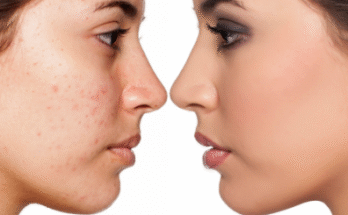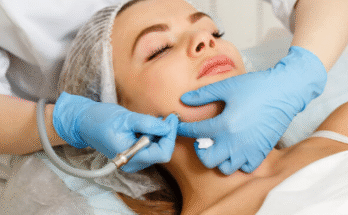Acne is one of the most common skin concerns around the world. Whether it shows up as small pimples, blackheads, or more noticeable breakouts, it can feel frustrating and even discouraging at times. The good news is that acne is a very normal condition, and with a little understanding of what causes it and how to manage it, you can find ways to improve your skin’s health and feel more confident.
At its core, acne happens when the tiny hair follicles in the skin get clogged with oil, dead skin cells, and sometimes bacteria. Everyone’s skin naturally produces oil, called sebum, to keep it hydrated and protected. However, when too much sebum is produced, it can mix with dead skin cells and block the pores. This blockage creates the perfect environment for bacteria to grow, leading to inflammation and breakouts.
Hormones also play a big role in acne. This is why many people first notice it during puberty or at times when hormone levels shift, such as during the teenage years or even adulthood. Stress, changes in diet, and certain lifestyle habits can also influence how often acne appears. It is important to remember that having acne does not mean you are not taking care of yourself. Many people with very good hygiene still experience breakouts, simply because their skin is naturally more prone to it.
Understanding the types of acne can also help. Blackheads and whiteheads form when pores are blocked, while pimples and papules happen when inflammation develops. More severe forms can include cysts or nodules, which may need professional care. Recognizing the kind of acne you have can guide you toward the best solutions.
When it comes to managing acne, patience is key. Skincare routines that focus on gentle cleansing and consistent care often show the best results. Washing your face twice a day with a mild cleanser can help remove excess oil and impurities without irritating the skin. Harsh scrubbing or over-washing can make acne worse, so being gentle is important.
Using products that contain ingredients like salicylic acid or benzoyl peroxide may help reduce clogged pores and bacteria. For some, moisturizers labeled as non-comedogenic are helpful because they hydrate without blocking pores. A consistent routine, rather than constantly switching products, gives the skin time to respond and heal.
Lifestyle choices can also support clearer skin. Drinking enough water, getting regular sleep, and reducing stress where possible all make a difference in overall skin health. While diet alone does not directly cause acne, some people find that limiting very sugary or greasy foods helps their skin feel and look better. Paying attention to how your skin reacts to certain habits or foods can give useful clues.
For those with persistent or more severe acne, visiting a dermatologist can provide personalized solutions. Professionals can recommend treatments or medications suited to your skin type, and they can help prevent acne from leaving long-term marks or scars. Seeking guidance is a positive step and nothing to feel hesitant about.
Most importantly, it is helpful to remember that acne is not a reflection of your worth or beauty. Many people experience it at different stages of life, and with care and time, it often improves. Treating your skin with kindness, avoiding unnecessary picking or squeezing, and focusing on healthy routines can lead to gradual, noticeable changes.
Clear skin is a journey, and each small step counts. By understanding what causes acne and learning about the solutions available, you give yourself the best chance to support your skin’s natural balance. With consistency, patience, and the right approach, managing acne becomes much less overwhelming and much more about self-care and confidence.

